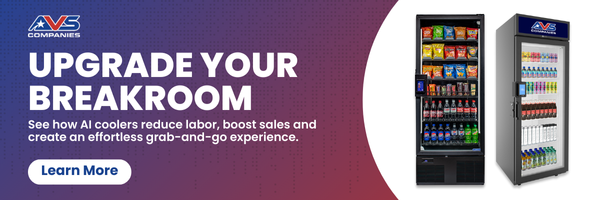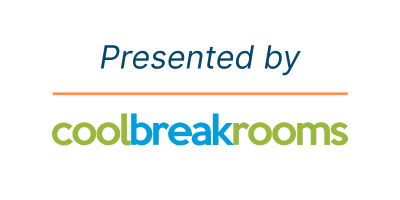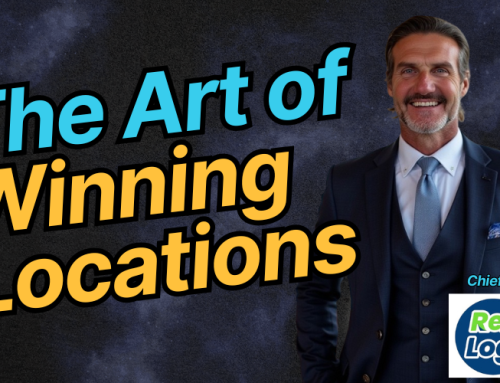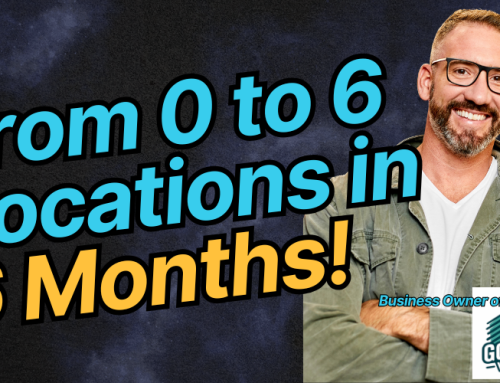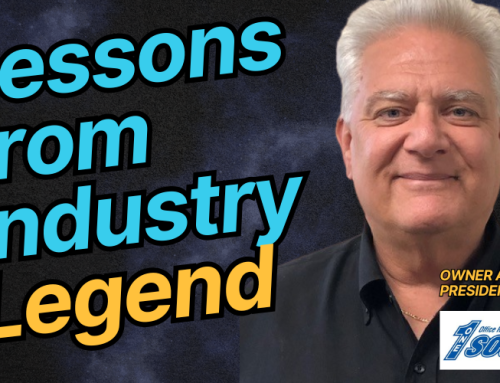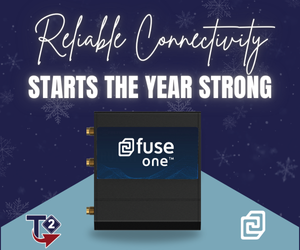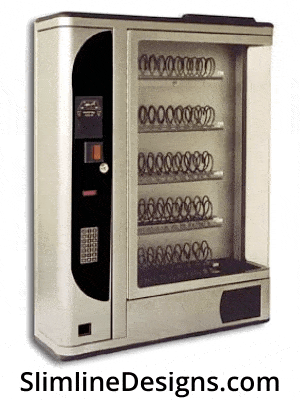By Neil Swindale
Every vending operator knows that success in this industry doesn’t come easy. The routes are long, the machines are stubborn, and the margins are earned one can and candy bar at a time. But few stories capture that grind — and the payoff — better than Jarrad Duxbury’s.
Before becoming CEO of Expressions Kiosks, a new self-service greeting card concept, Jarrad built, scaled, and sold multiple vending operations — taking himself from a collapsing construction business in 2008 to running one of the fastest-growing Canteen franchises in the U.S.
Entrepreneurship in His DNA
Duxbury didn’t just stumble into entrepreneurship — it was part of his upbringing. His father was an electronics engineer turned entrepreneur, who started building circuit boards on the family’s pool table and eventually grew that side project into a multimillion-dollar manufacturing company competing with industry giants like Rain Bird and Toro.
“I watched my dad go from soldering parts on a table at home to running a company with a hundred employees,” Jarrad recalled. “It was amazing to see what hard work and innovation could do.”
That front-row seat to persistence, problem-solving, and risk-taking planted the seeds. “I didn’t think I’d follow in his footsteps,” he said. “I wanted stability. But when life pushed me into entrepreneurship, I realized those lessons were already in me.”
Crisis, Grit, and a 550-Machine Gamble
When the housing crash hit in 2008, Duxbury’s Arizona construction business evaporated overnight. Two days before Christmas, with his first child on the way, he was broke and desperate. A friend handed him a lifeline — a small vending route in Yuma, Arizona, with 550 ancient machines and zero technology.
“The first machine I opened was older than me,” he laughed. “The bill validator fell out — it had been held in with folded napkins.”
That moment started a 14-year ride through every challenge an operator could face: obsolete equipment, debt, and a steep learning curve. But he did what true vendors do best — adapted and outworked everyone else.
Rebuilding From the Ground Up
With borrowed capital at 10% interest and nothing to lose, Duxbury reinvested every dime into upgrading equipment. He was among the first in his region to roll out credit card readers, pre-kitting systems, and VMS tracking. “I didn’t know any better,” he said. “Kevin Van Hazel at ACE Vending told me, ‘Just copy what the big guys do.’ So that’s what we did.”
The result: fast growth. Yuma’s annual revenue jumped from $550,000 to $800,000, then $1.2 million. By the early 2010s, he was managing multiple routes, hiring staff, and thinking bigger.
Tucson Expansion and the Canteen Connection
ACE Vending saw potential and asked Duxbury to open a branch in Tucson to serve larger contracts. Starting with a 1,500-square-foot warehouse and a beat-up Isuzu truck with no reverse gear, he built the operation to $3.5 million in annual sales.
In 2018, Duxbury sold the Tucson branch to Canteen and franchised the Yuma business. But the real turning point came with a phone call from Bob Andrews at Canteen:
“He said, ‘You’re young, you’re hungry, and you like risk. Go to Reno — we’ve got a hole in the map.’”
That call changed everything.
The Reno Revolution: 14 Trucks of New Energy
In July 2018, Duxbury and his partners arrived in Reno, Nevada — not with a pickup truck and hope, but with 14 truckloads of brand-new Crane vending machines.
“We burned every dollar we had,” he said. “We’d just sold a piece of real estate for $3 million and poured it all into fresh equipment.”
It turned out to be perfect timing. Reno was booming with new tech companies like Tesla, Apple, UPS, FedEx, and Chewy, all building distribution centers. While his competition — a private equity operator — was running aging equipment, Duxbury’s team flooded the market with state-of-the-art machines, micro markets, and OCS solutions.
The result: in just four and a half years, his company went from zero to $11 million in annual revenue with 16% EBITDA.
Culture, People, and the Real Payoff
The financial success is impressive, but Duxbury says what mattered most was building people. “We grew so fast that there was always a next step for someone on the team,” he said.
“Seeing our employees buy their first homes, move up from warehouse to management — that was the best part.”
He made it a point to promote from within and reward hard work. “I hired one guy who’d been turned down elsewhere because of his accent,” Jarrad recalled. “He became one of my best managers. It was the best investment I ever made.”
A Blueprint for the Next Generation
As legacy operators retire and sell, Duxbury believes now is the time for young entrepreneurs to enter the industry.
“If you’re willing to work hard, there’s so much opportunity,” he said. “It’s not passive income — forget what TikTok says — but if you’re hungry and smart about tech, you can win.”
His formula for new operators:
- Outwork the competition. “Nobody’s loyal if their machine’s empty.”
- Invest in technology early. Credit card readers, telemetry, dynamic scheduling — “They’re not optional anymore.”
- Run your business like it’s for sale. Keep clean books, asset lists, and contracts.
- Build culture. “When your team wins, your company wins.”
The Exit — and the Next Adventure
By 2022, after 14 years in vending, Duxbury sold his operations and moved on to a new challenge: Expressions Kiosks, a self-service greeting card concept that blends printing, gift cards, and customization — a fitting evolution for someone who’s always thrived at the edge of vending and innovation.
“I guess I did follow in my dad’s footsteps after all,” he said. “He built something from nothing, and now I’m doing the same — just with different tools.”
Final Thoughts
Jarrad’s journey is a masterclass in resilience, timing, and hustle — a story that reminds us why vending remains one of the best entrepreneurial playgrounds in America. From pushing a truck with no reverse gear to running an $11 million operation, he’s proof that in this business, the harder you grind, the luckier you get.

